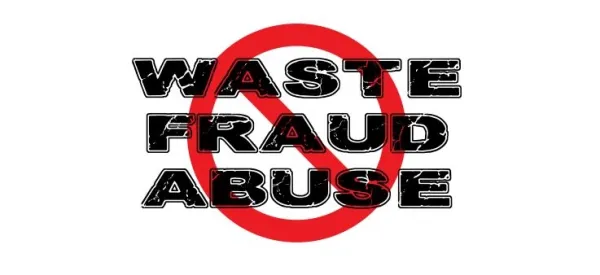Home Health & Hospice Week
OIG Examines COVID Infection Control At 8 HHAs
Would your IC practices pass muster?
Providers hoping they might get some survey leniency due to the COVID-19 Public Health Emergency need just take one look at a new HHS OIG report for the answer.
The HHS Office of Inspector General examined “infection prevention and control policies and procedures for eight [home health agency] providers,” it says in a report released Sept. 27. “We reviewed each HHA provider’s policies and procedures to determine whether they include: (1) guidance for following standards of practice, (2) a coordinated agencywide infection control program, and (3) infection control education for HHA staff, Medicare beneficiaries, and caregivers. We also determined whether the HHA providers’ policies and procedures followed [Centers for Medicare & Medicaid Services] COVID-19 guidance for: (1) screening patients, (2) screening staff, and (3) treating patients with known or suspected COVID-19,” the OIG says in a summary of the report.
“Medicare beneficiaries receiving home health services may be at a high risk of developing severe illness from COVID-19,” the OIG maintains. HHAs “must comply” with CMS infection prevention and control requirements and follow CMS guidance, the OIG insists.
Six of the eight HHAs passed inspection, but two did not. The audit targets weren’t random. The OIG chose “three of the largest HHA providers in the country, and we judgmentally selected five HHA providers that were cited for infection prevention and control deficiencies during surveys conducted in 2019 and 2020 for review,” it says in the report.

The audit targets filled out a questionnaire about IC practices. Two of the agencies had “COVID-19 screening protocols for patients [that] were not consistent with CMS guidance,” the OIG says.
And one of the agencies had a number of other IC failings, including that their IC P&P did not: require staff to follow one of the standard precautions to prevent the transmission of infections and communicable diseases; include documentation of surveillance methods used for identifying and tracking infections and improvement activities to prevent infection; include COVID-19 screening protocols for staff in accordance with CMS guidance; nor include information about how to care for patients with known or suspected COVID-19 in accordance with CMS guidance.
All eight agencies complied with IC education requirements, the OIG notes.
Do this: “HHA providers should continue to review and update infection control policies and procedures as needed and ensure HHA staff are following them to reduce the risk of infection,” the OIG urges.
Don’t expect the IC scrutiny to let up any time soon. CMS “provided surveyors a streamlined review tool to conduct targeted infection control surveys of providers identified through collaboration with the Centers for Disease Control and Prevention (CDC) and the Assistant Secretary for Preparedness and Response (ASPR),” notes CMS Administrator Chiquita Brooks-LaSure in a response letter to the report. “CMS is committed to protecting beneficiaries in the home care setting from the spread of infectious diseases,” she says.
Don’t miss: The report also contains a breakdown by state of 2020 home health claims with a principal diagnosis code of COVID-19. Out of 79,131 such claims, Florida had the most (5,973) followed by Texas (5,487).
Note: The 23-page report is at https://oig.hhs.gov/oas/reports/region1/12000508.pdf. The OIG lists best practices on pp. 10-11.
Home Health & Hospice Week
- Value-Based Purchasing:
Will Jan. 1 Start Date For Value-Based Purchasing Hold?
Commenters take aim at rushed implementation, money at stake. Commenters on the 2022 home health [...] - Regulations:
Reconsider Those Nationwide Cohorts, Multiple Commenters Urge
Social determinants of health vary by geography. If you think a national cohort for the [...] - Reimbursement:
VBP To Cripple Non-Improving Patients’ Access To HH, Critics Warn
That lack of access will cost Medicare money. Commenters’ favorite Home Health Value-Based Purchasing topic [...] - Quality:
New Hospitalization Measure To Complicate VBP Implementation
Plus: VBP demonstration states want their 8% bonus for next year. Home Health Value-Based Purchasing [...] - Fraud & Abuse:
OIG Examines COVID Infection Control At 8 HHAs
Would your IC practices pass muster? Providers hoping they might get some survey leniency due [...] - Industry Notes:
Gear Up For Patient, Staff COVID Boosters
Don’t let regulatory confusion slow your vaccination roll. Whether you give the shots yourself or [...] - Industry Notes:
HHA PEPPER Report Retrievals Lag Significantly Behind Hospice PEPPER Downloads
With auditors, surveyors, and medical reviewers on high alert, you don’t want to stick out [...] - Industry Notes:
Review Choice Demonstration Claims Glitch Regarding Unique Tracking Numbers Trips Up Agencies
A new claims glitch may be adding to your Pre-Claim Review confusion — and delaying [...] - Industry Notes:
The Scariest Thing About October May Be Missing The PRF Round 4 Deadline Before Halloween
You’ve got less than a month to apply for the latest round of Provider Relief [...]

